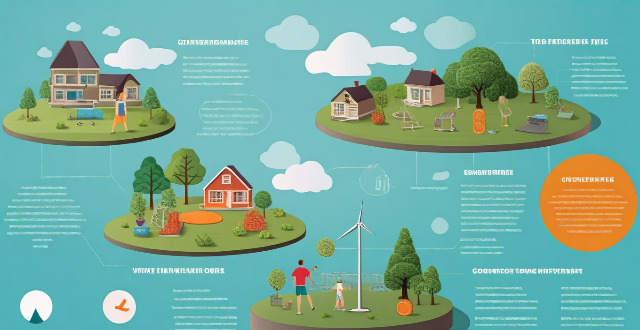To contribute to fulfilling climate commitments, individualsTo contribute to fulfilling climate commitments, individuals of climate change and implement actions individuals should understand the basics of climate change and implement actions such as reducing their carbon footprint, supporting renewable energy, adopting sustainable living practices, advocating for environmental policies, making green investments, preserving natural habitats, influencing policy, staying informed, and making lifestyle changes. These collective efforts can significantly reduce greenhouse gas emissions and promote a sustainable future.

How Can Individuals Contribute to Fulfilling Climate Commitments?
1. Understanding the Basics
Before diving into actions, it's crucial to grasp the basic concepts of climate change and the commitments countries have made, such as the Paris Agreement goals to limit global warming.
2. Reducing Carbon Footprint
- Transportation: Choose public transit, carpool, cycle, or walk when possible. For longer distances, consider taking a train instead of flying.
- Energy Consumption: Use energy-efficient appliances and light bulbs. Turn off lights and unplug devices when not in use.
- Food Choices: Adopt a plant-rich diet that has a lower carbon footprint. Reduce food waste by planning meals and composting.
3. Supporting Renewable Energy
- Solar Power: Install solar panels at home or support community solar projects.
- Wind Energy: Advocate for wind farms in appropriate areas.
- Hydroelectric & Other Sources: Support clean energy initiatives and renewable energy companies.
4. Sustainable Living Practices
- Water Conservation: Fix leaks, use water-saving fixtures, and be mindful of water usage.
- Waste Reduction: Minimize plastic use, recycle, and buy products with less packaging.
- Sustainable Shopping: Opt for second-hand items, buy locally produced goods, and choose products made from sustainable materials.
5. Advocacy and Awareness
- Vote with Environmental Agenda in Mind: Support politicians who prioritize climate action.
- Engage in Community Actions: Participate in local clean-up drives, tree planting, and environmental workshops.
- Share Knowledge: Educate others about climate change and how they can contribute.
6. Investing Wisely
- Green Investments: Consider putting money into green funds or companies working on climate solutions.
- Ethical Banking: Use banks that have environmental policies and invest in sustainable projects.
7. Habitat Preservation
- Support Conservation: Donate to organizations focused on preserving natural habitats and wildlife.
- Gardening for Biodiversity: Create habitats for pollinators and other species in your garden.
8. Policy Influence
- Signature Campaigns: Sign petitions supporting climate policies and regulations.
- Participate in Hearings and Consultations: Make your voice heard on environmental issues.
9. Education and Research
- Stay Informed: Keep up with climate change news, research, and scientific findings.
- Foster Education: Encourage educational institutions to include climate change in their curricula.
10. Lifestyle Changes
- Mindful Consumption: Lead a minimalist lifestyle focusing on experiences rather than material possessions.
- Healthy Habits: Inline personal health goals with environmental sustainability, like choosing outdoor activities for exercise.
By incorporating these practices into daily life, individuals play a significant role in helping their countries meet their climate commitments. It's about making conscious choices that collectively lead to a substantial reduction in greenhouse gas emissions and foster a more sustainable future for all.